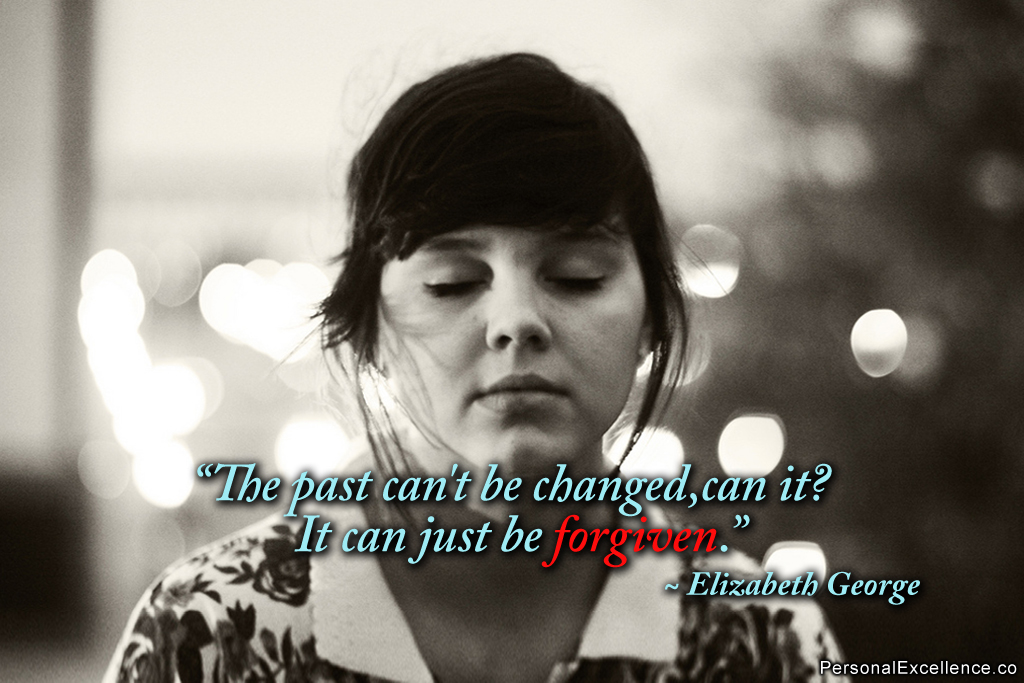
“We all have problems. The way we solve them is what makes us different.” — Unknown
“It’s not stress that kills us, it is our reaction to it.” — Hans Selye
Have you experienced moments when things don’t go your way? It could be small setbacks such as your boss scolding you, not reaching your goal target, or losing something important. It could be big setbacks like failing in your business, losing your job, or getting a divorce.
You’re not alone. All of us have times when things don’t go as we expected. I certainly do too.
When you face negative incidences, what do you do? Do you beat yourself up? Do you become negative? Or do you learn from it and move on?
While we cannot change some of the negative events that happen to us, we can change how we react to them. When we don’t learn to deal with our negative setbacks properly, we get caught in a negative cycle which causes ourselves more damage. We waste time harping on what has happened rather than moving on. By learning to deal with setbacks in a positive way, we can then deal with life’s big challenges more effectively. :)
Here are my 10 tips to deal with daily setbacks in life.
1. Take a step back and evaluate
When something bad happens, take a step back and evaluate the situation. Some questions to ask yourself:
- What is the problem?
- Am I the only person facing this problem in the world?
- How does this problem look at an individual level? At a national level? How about at a global level?
- What’s the worst thing that can happen to me because of this?
- How is this going to impact my life in the next 1 year? 5 years? 10 years?
For example, say you made a severe mistake at work and your boss rebuked you during a company meeting. You burst out crying and you want to quit your job the next day. This is an understandable reaction. If we apply the questions above though, we may find new perspectives to handle this issue. For example:
- What’s the problem? You made a severe work mistake and your boss rebuked you. You feel publicly shamed and embarrassed.
- Am I the only person facing this problem in the world? Probably not. Many people get told off by their bosses, especially people with less sensitive bosses. This is not trying to downplay the problem or excuse a boss’ bad behavior (especially if he/she was being insensitive), but simply to put things into perspective.
- How does this problem look at an individual level? At a national level? How about at a global level? At the individual level, this is indeed a big problem. You made a severe mistake, one that may have cost the company tens of thousands of dollars, and people are upset. At a national level, it is not good for employees to make mistakes that cost their company money, but it does happen. In fact, high-level directors can make mistakes that cost their companies tons of money (some then lose their job as a result). Elon Musk recently sent out a tweet that violated Securities and Exchange Commission (SEC) regulations and cost him and his company Tesla $20 million each as part of a SEC fine. As part of the SEC settlement, he also had to resign as chairman of Tesla’s board of directors for the next three years.[1] At a global level, such a problem at work becomes minute. When you consider global and very real issues like famine, poverty, homelessness, and domestic abuse, problems at work can seem much smaller, and even a luxury, in comparison.
- What’s the worst thing that can happen to me because of this? Your colleagues may have a bad impression of you as they think that you’re not serious about your work or that you’re not very competent. This mistake may show up in your performance review for the year. In the worst case scenario, you may get fired. While each scenario isn’t ideal, it isn’t a life-or-death thing. If people think poorly of you, so be it — you don’t live your life for them, and you can always improve people’s opinions by improving on your work. If you lose your job, you can always get another — and possibly better — job. Life doesn’t end when mistakes happen at work, and what’s most important is that you reflect, learn, and improve from this experience.
- How is it going to impact my life in the next 1 year? 5 years? 10 years? While this incident feels painful right now, it’s because you just experienced it. One year from now though, it’s likely you won’t think much about it. 5-10 years later, it’s totally insignificant. Of course if you get dismissed from your job, it will create a significant impact, but you can easily brush up your resume and look for a new job.
Doing this exercise isn’t to undermine the problem or to disclaim responsibility. It’s to consider different perspectives so that you can act in a way that gets you the best results.
Most problems we encounter daily may seem like huge issues when they crop up, but most, if not all, do not have much impact on our lives. Don’t get too stressed up over them but focus on what can be done. Repeat the questions for your other problems and you will find that most of your problems don’t deserve so much stress and attention. Rather than feel stressed, it’s more constructive to spend your time taking action to solve your problems instead.
2. Vent if you have to but don’t linger on the problem
If you feel very frustrated and need to let off some steam, go ahead and do that. Talk to a friend, complain, or scream at the top of your lungs if it makes you happy. Don’t bottle up your frustration because it’s not healthy to do so. It’s like putting a lid on a pot of boiling water — the heat and pressure will only increase. Soon it’ll explode, and you don’t want that to happen!
However, don’t get stuck with venting. Some people are angry all the time and it makes them very unattractive. Venting may relieve yourself for now but it won’t solve the problem. You don’t want to be an energy vampire. Vent for 10 to 15 minutes, then move on.
3. Process your emotions
Processing your emotions means to gain awareness of your emotions and to deal with them appropriately. The opposite is to “repress,” which means to bottle up your feelings or even deny them.
When we face a setback, it’s normal to feel unhappy about it. It’s important to learn to process these emotions, because otherwise they will just build up in us. Over time, they weigh you down and create baggage. Some people ignore their (negative) emotions, thinking that doing so is to be positive. But it’s not. Negative emotions are part and parcel of the human growth experience, and it’s by processing them that we learn and grow.
So how can you process your emotions?
- Journal. Write down your unhappiness in a diary. It doesn’t have to be anything formal — you can simply brain dump on paper or a word document. Delete after you are done.
- Audio taping. If you prefer to talk rather than write, record yourself as you say what’s on your mind. Most smartphones today come with an audio recording function, so use it to record a private chat with yourself. Just talking helps you gain awareness of your emotions. After recording, playback and listen to what you said. You might find it quite revealing.
- Meditate. Set aside five minutes and sit down and meditate. Observe your thoughts and emotions float by. These emotions have always been there — you are simply giving yourself the space to finally acknowledge them. Read: How To Meditate in 5 Simple Steps
- Talking to someone. Talking with someone helps you work through the issue. It also gives you an alternate viewpoint and lets you consider things from a different angle.
4. Uncover what you’re really upset about
Many times we are not upset with someone or angry at the world. You may start off feeling angry at someone or something, but at the heart of it, you are really feeling angry at yourself.
I used to get really angry whenever I lost my cards or keys, something which happened often when I was a kid and in my teens. The problem wasn’t the loss of that item, but that I had lost these things fairly often in the past. Furthermore, my dad’s repeated criticism whenever I lost these items (when I was young) compounded this pain.
When I dug into this anger, I realized that deep down, I was really angry at myself. I was pissed off by how careless I was — that I would lose things so easily, that I was a klutz and that I was an idiot. I was angry at how I couldn’t even get something small right.
Uncovering this anger helped me work through the issue, which included forgiving myself and letting go of my negative childhood stories regarding my dad’s criticisms. In the past, my dad was merely chiding me when I lost such items — and it was understandable since it would cost money to replace those things (and my family was poor). Yet as a young kid repeatedly listening to these comments growing up, it made me frustrated at myself. It falsely amplified the pain of losing my card / keys to a degree that had nothing to do with the item’s loss but rather based on the stories in my head. These frustration and negative association were things that I needed to let go.
One way to uncover your anger is to ask yourself, “What am I really angry about?” Keep probing until you reach the root reason of your anger, which is often to do with yourself (and not anyone else). I share a detailed guide on how to overcome anger in my 5-part anger series that you can read here.
After you uncover your anger, what can you do about it? How can you improve the situation? Go to Step 7 below to identify your action steps. Anger usually comes as a result of feeling out of control. Sitting there and feeling angry isn’t going to change the situation. By taking action, you regain control of the situation which helps put you back in the driver’s seat.
(Read my 5-part anger series here: How to Let Go of Anger (series))
5. Give yourself a break
If you are feeling very stressed out and the problem is not time-sensitive, then give yourself a break. Take a walk, listen to some music, watch a movie, or get some sleep. When you’re done, you should feel more energized to deal with the situation. A little self-care and love goes a long way. ❤️
6. See this as an obstacle to overcome
Helen Keller, an American author and political activist who was also the first deaf-blind person to earn a bachelor of arts degree, once said:
“Character cannot be developed in ease and quiet. Only through experiences of trial and suffering can the soul be strengthened, vision cleared, ambition inspired and success achieved.”
Whatever you’re facing now, see it as an obstacle to overcome. With every worthy endeavor, there’ll always be countless obstacles that emerge along the way. These obstacles are what separate the people who make it and the people who don’t. If you’re able to push through these obstacles and overcome them, you’ll emerge a stronger person than before. It’ll be harder for anything to get you down in the future.
7. Focus on actionable steps
In a difficult situation, there may be things that can’t be reversed. For example, a business mistake that ended up costing you ten thousands of dollars. A work mistake that wound up costing you your job. A past career mistake that led you to waste years building your career in the wrong area. A friendship that has gone past the point of no return due to a silly misunderstanding.
Focus on the things that can be changed rather than things that can’t be changed. The only time when things change is when you act on the problem. Rather than cry over spilt milk, work through the problem:
- What’s the problem you are facing?
- What’s frustrating you about it?
- What can you do to resolve it?
After identifying your action steps, act on them. The key here is to focus on what you can improve and change, not what you can’t change. We can spend all our time feeling upset about things that have happened and that we can’t change, or we can change our focus to the things we can change instead. It’s about regaining control of the situation and life through action.
8. Realize the situation could be a lot worse
No matter how bad the situation is, it could always be much worse. Let’s say you are going through a stressful period at work and you may be facing retrenchment soon. Do a pros vs. cons analysis:
What’s bad about the situation:
- If I get retrenched, I will lose my income. I’ll be weighed down by my living expenses and I will feel like a let down to my family.
- There is so much uncertainty in the air and it’s stressful going to work each day. Morale is low and everyone is feeling negative about everything.
- I’m working late hours just to stay afloat in my job.
The upside:
- While I may likely get retrenched, I haven’t lost my job yet. I can be proactive and start my job search right now by working on my resume, speaking to headhunters, and networking with other people in the industry for possible job openings.
- A new job will present new learning and job opportunities. I should see this as a chance to think about what I want out of my life and to consciously shape my career path to fit my desired life direction.
- I can work on my finances now and cut down unnecessary expenses. This way, I will have more savings if push comes to shove and I really get laid off.
When you do a pros vs. cons analysis like this, it helps you see the problem in a more objective light. Instead of thinking it’s all doom and gloom, you see the situation for what it is and act on it.
9. Identify learning points from the setback
Whenever we face a problem, there is always something to learn from it. In fact, the more painful a problem is, the more there is to learn, because it means the problem is currently bigger than you (for you to feel this much pain).
Here’s my question to you: What can you learn from this situation? How can you improve from it?
From my past experience with losing things for example, I learned
- To be more careful with my personal possessions
- To handle my emotions better
- How to handle similar situations next time
- That there is an upside to being careful with my personal belongings. In the past, I would think that it was pointless since I assumed that these things would be there all the time, which was exactly why I would keep losing things.
Maybe you’re going through a breakup now. Some possible learning points are
- You are now aware of the things you don’t want in a partner.
- You are now wiser about how to look out for your desired traits in a partner.
- You learned how to better deal with conflicts and handle a relationship.
- You are now ready to be a better partner to the next person who comes your way. :)
After identifying your learning points, think about how you’re going to apply them. With this simple exercise, you’ve clearly gained something from the encounter. It is not a wasted experience because you can now apply these crucial lessons in future situations and build a better life. :)
10. Do your best, but don’t kill yourself over it
Last but not least, always do your best to tackle the problem, but don’t kill yourself over it.
Back when I was in my previous corporate job (which was an intensely stressful managerial job), I was handling a huge amount of responsibilities. Every day felt like a firefighting session. Everyone was constantly stressed out and the atmosphere was sometimes high strung. I was the project manager of a series of multi-million-dollar business projects, interacting with 50 different people across multi-functional teams and external agencies on a weekly basis. Make one little oversight and a project could get jeopardized, which meant that you would have to explain yourself to senior management and have a ready set of solutions to address the issue.
After months of feeling intensely stressed out, I realized that no matter what happens, there is always a way to address it. There are always steps you can take to logically break down the problem, diffuse the situation, and get help. Even in the worst case scenario, you can simply quit your job, though this is almost never necessary. My point is not to diminish your responsibility in the situation but to highlight that even in the worst case scenario, things are rarely as bad as we think they are.
Hence, no matter how bad your situation may seem, do your best to address it but don’t kill yourself over it. Life is too short to worry so much about daily setbacks. Take a step back (Step 1), give yourself a break if you need to (Step 5), and do what you can to address the problem (Step 7). Everything else will unfold accordingly. Worrying too much about the outcome isn’t going to change things or make your life any better. But channeling your energy to the things you can do, this is much more constructive.
Check out my other articles on dealing with life challenges:
If you like this article, I’ve created a manifesto version that you can download here: [Manifesto] What To Do When Things Don’t Go Your Way :)





![Science of Happiness [Infographic]](https://personalexcellence.co/files/infographic-science-of-happiness-200x1200.jpg)


 Thanks for reading. If you like my free articles, join my private email list and get my latest updates and articles sent right to your inbox.
Thanks for reading. If you like my free articles, join my private email list and get my latest updates and articles sent right to your inbox.